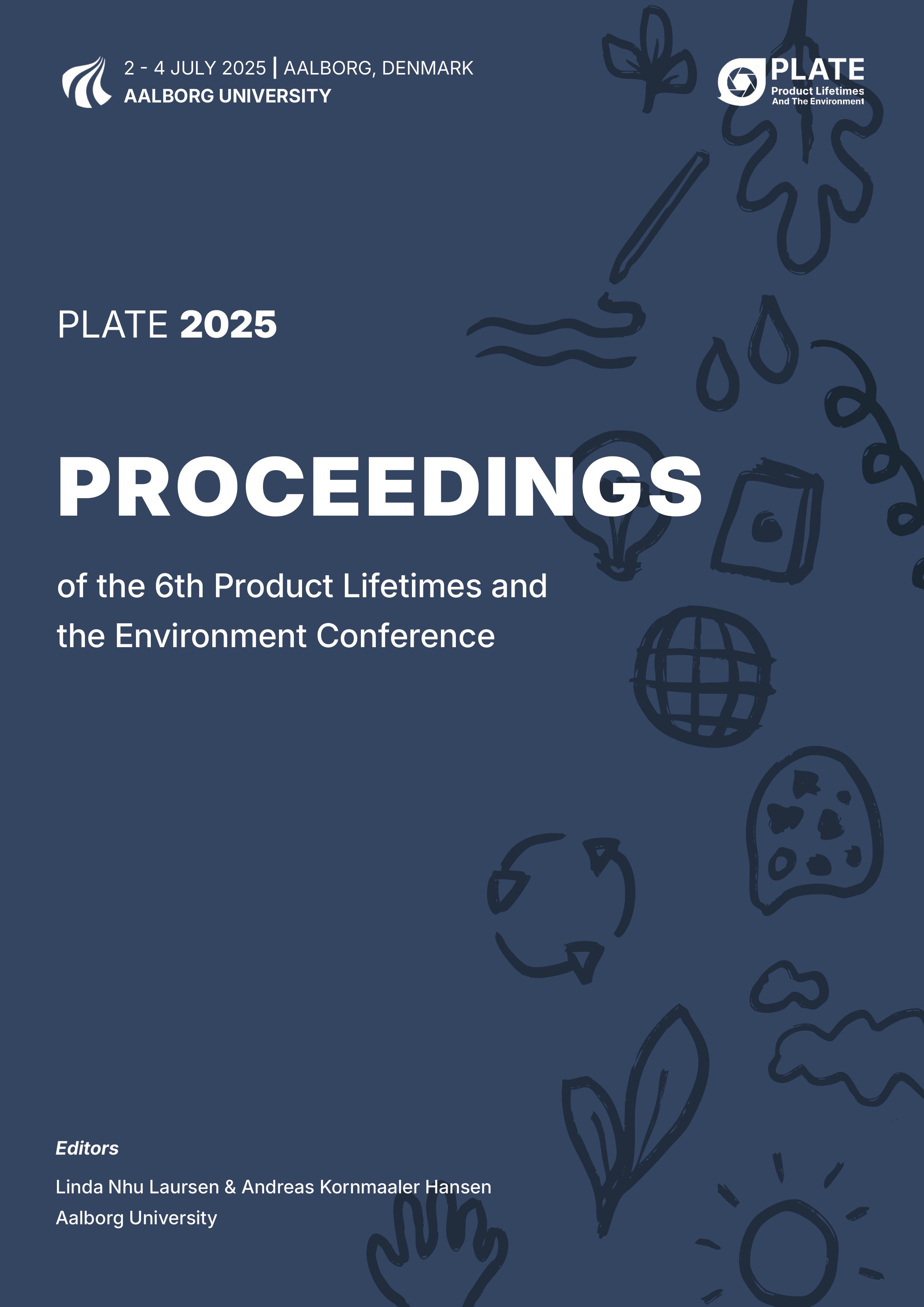From Clicks to Circular Behavior
A Smart City Mobile Application Leveraging AI and Gamification
DOI:
https://doi.org/10.54337/plate2025-10355Keywords:
Circular Economy, Behavior Change, Gamification, Artificial Intelligence, Smart City Mobile ApplicationReferences
Behrendt, S., Henseling, C., & Sievi, M. (2024). Bestandsaufnahme und Analyse der vorhandenen digitalen Ansätze zur Förderung eines nachhaltigen, zirkulären Konsums: Kurzfassung im Rahmen des Projektes "Konzeption und Planung digitaler Lösungen zur Förderung von nachhaltigem Konsum für eine Kreislaufwirtschaft." Internal Project Report. IZT, Berlin.
Berger, M., Lange, T., & Stahl, B. (2022). A digital push with real impact–Mapping effective digital nudging elements to contexts to promote environmentally sustainable behavior. Journal of Cleaner Production, 380, 134716. https://doi.org/10.1016/j.jclepro.2022.134716
Brown, P., Baldassarre, B., Konietzko, J., Bocken, N., Balkenende, R. (2021). A tool for collaborative circular proposition design. Journal of Cleaner Production, 297, 126354. https://doi.org/10.1016/j.jclepro.2021.126354.
Coffay, M., Bocken, N., 2023. Sustainable by design: an organizational design tool for sustainable business model innovation. Journal of Cleaner Production, 427, 139294. https://doi.org/10.1016/j.jclepro.2023.139294.
Ellen MacArthur Foundation (2013). Towards the circular economy Vol. 2: Opportunities for the consumer goods sector.
European Commission (EC) (2020). A new Circular Economy Action Plan. For a cleaner and more competitive Europe. https://eur-lex.europa.eu/resource.html?uri=cellar:9903b325-6388-11ea-b735-01aa75ed71a1.0017.02/DOC_1&format=PDF
Hedin, B., Katzeff, C., Eriksson, E., & Pargman, D. (2019). A systematic review of digital behaviour change interventions for more sustainable food consumption. Sustainability, 11(9), 2638. https://doi.org/10.3390/su11092638
Jääskä, E., Aaltonen, K., & Kujala, J. (2021). Game-based learning in project sustainability management education. Sustainability, 13(15), 8204. https://doi.org/10.3390/su13158204
Katika, T., Karaseitanidis, I., Tsiakou, D., Makropoulos, C., & Amditis, A. (2022). Augmented reality (AR) supporting citizen engagement in circular economy. Circular Economy and Sustainability, 2(3), 1077-1104.
Kirchherr, J., Yang, N. H. N., Schulze-Spüntrup, F., Heerink, M. J., & Hartley, K. (2023). Conceptualizing the circular economy (revisited): An analysis of 221 definitions. Resources, Conservation and Recycling, 194, 107001. https://doi.org/10.1016/j.resconrec.2023.107001
Lange, S., Frick, V., Gossen, M., Pohl, J., Rohde, F., & Santarius, T. (2023). The induction effect: Why the rebound effect is only half the story of technology's failure to achieve sustainability. Frontiers in Sustainability, 4, 1178089. https://doi.org/10.3389/frsus.2023.1178089
Lemon, K. N., & Verhoef, P. C. (2016). Understanding customer experience throughout the customer journey. Journal of Marketing, 80(6), 69-96. https://doi.org/10.1509/jm.15.0420
Murakami, S., Oguchi, M., Tasaki, T., Daigo, I., & Hashimoto, S. (2010). Lifespan of commodities, part I: The creation of a database and its review. Journal of Industrial Ecology, 14(4), 598-612. https://doi.org/10.1111/j.1530-9290.2010.00250.x
Muranko, Z., Andrews, D., Newton, E. J., Chaer, I., & Proudman, P. (2018). The pro-circular change model (P-CCM): Proposing a framework facilitating behavioural change towards a circular economy. Resources, Conservation and Recycling, 135, 132-140. https://doi.org/10.1016/j.resconrec.2017.12.017
Potting, J., Hekkert, M. P., Worrell, E., & Hanemaaijer, A. (2017). Circular economy: Measuring innovation in the product chain. Planbureau voor de Leefomgeving.
Van Aken, J. E., & Romme, G. (2009). Reinventing the future: Adding design science to the repertoire of organization and management studies. Organization Management Journal, 6(1), 5-12. https://doi.org/10.1057/omj.2009.1
Whalen, K. A., Berlin, C., Ekberg, J., Barletta, I., & Hammersberg, P. (2018). 'All they do is win': Lessons learned from use of a serious game for circular economy education. Resources, Conservation and Recycling, 135, 335-345. https://doi.org/10.1016/j.resconrec.2017.06.021




